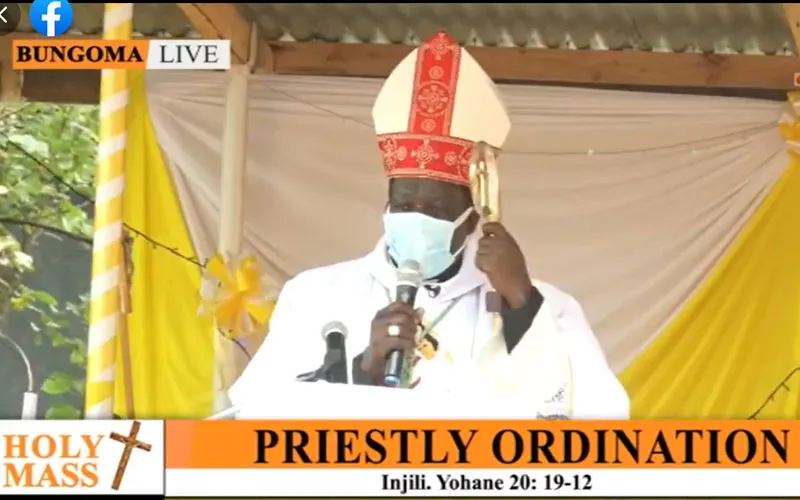Bungoma, 18 June, 2021 / 8:10 pm (ACI Africa).
The Bishop of Kenya’s Kakamega Diocese has faulted the government for suspending public worship in parts of the country, a move that seems to undermine, the Bishop says, the role of the Inter-faith Council.
Speaking during the Priestly ordination of Deacon Reuben Kemei in Bungoma Diocese where he also serves as Apostolic Administrator, Bishop Joseph Obanyi Sagwe said that in deciding to ban physical congressional worship in the 13 Counties of Western Kenya, the government acted arbitrarily without consultation.
“We understand there is a spike of COVID-19 infections in the region. We have advised our congregants accordingly and I do not think religious gatherings will be of any risk to them. All church and other faith-based gatherings in this region have been observing the social distancing rule and all other set measures,” Bishop Obanyi said Friday, June 18.
On Thursday, June 17, the Kenyan Government announced new COVID-19 containment measures to be enforced in 13 Counties in the Western part of the country, including a downward revision of curfew hours and a ban on all social and congressional gatherings for a month.
“All forms of physical congressional worship (churches, mosques, temples and shrines) in the hotspot counties are suspended for a period of 30 days,” Kenya’s Health Cabinet Secretary, Mutahi Kagwe said Thursday, June 17.








